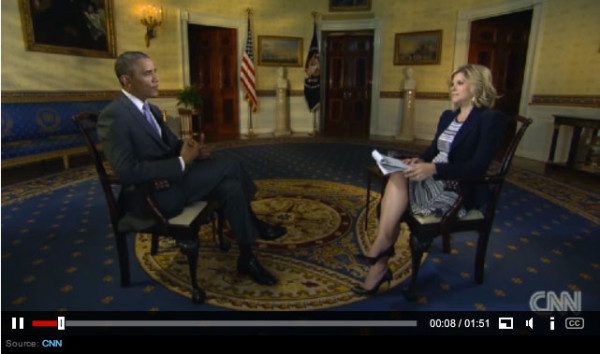President Obama on Monday convened the White House Summit on Working Families. For all the coverage of debt ceilings and international diplomacy lately, today’s summit is a breath of fresh air.
Believe it or not, the United States is the only developed country in the world which does not offer paid family leave.
How does this affect everyday families?

In the US, federal law protects the job position of a parent who takes family leave for the birth or adoption of a child, or other family leave, but does not require pay. Imagine how this lost income affects a family.
What happens if you need to attend your child’s school play or a parent-teacher conference, or your child gets sick and you have to stay home? You risk not being paid.
The time has come for the United States to step up to the plate. Businesses claim this will hurt their bottom line and work will not get done. Companies like Google, who have already enacted some of these practices — Google offers five months of paid maternity and paternity leave — have seen the rate of women leaving the company decreased by half, according to the White House.
President Obama said, “For companies who are offering paid family leave, who are offering flexibility, their workers are more productive, more loyal,” he said. “There’s lower turnover and ultimately, they’re going to be more profitable.”
While paternity leave looks like a “perk” or “free vacation” for new dads, according to Liza Mundy in The Atlantic, “the true beneficiaries of paternity leave are women.”
Why?
When women and men share parental responsibilities and develop balanced habits from the beginning of the child’s life, the women feel more comfortable returning to the workplace, if they so desire. A stronger workforce means better pay for women and commitment to the employer, which in turn lowers turnover and the associated costs.
Mundy says, “the genius of paternity leave is that it shapes domestic and parenting habits as they are forming.”
We need to shift paternity leave from a “perk” to an expectation: if we do not spend these early days with our young kids, we will forever lose these moments. When Malia was born, President Obama shared with CNN, “I was lucky enough that my schedule allowed me to take that first month off. And staying up until 2 in the morning and feeding her and burping her creates a bond that is irreplaceable.”
Provisions for all types of family leave also allow single parents to support their kids’ school efforts by providing time to meet with teachers and attend concerts or assemblies. Parent involvement is a big deal, and we need to support this, too.
In an earlier day when women were discouraged from the workplace and expected to care for home, children and family, the current laws would have made sense. My grandfather dropped my grandmother off at the hospital for the birth of my aunt and went back the next day to meet the baby.
The times are different. Many dads are engaged, and many more want to have more flexibility to be involved to a greater degree. With the right support, they will feel valued and respected in the workplace for taking care of family at home.
 Let’s take first steps. Men, no matter when you take time, investing in the early days of your child will be important. When my daughter was born, I had stockpiled vacation and sick leave and spent three weeks at home, like the President, helping with mid-night diaper changes and bonding with my daughter. With our second daughter due in October, I envision a more flexible arrangement, because I work for a small nonprofit and don’t have stockpiled vacation time to use.
Let’s take first steps. Men, no matter when you take time, investing in the early days of your child will be important. When my daughter was born, I had stockpiled vacation and sick leave and spent three weeks at home, like the President, helping with mid-night diaper changes and bonding with my daughter. With our second daughter due in October, I envision a more flexible arrangement, because I work for a small nonprofit and don’t have stockpiled vacation time to use.
Consider taking some time when your child is born, then more time a month or two later, or coinciding with the time when your partner returns to work. Also look into teleworking for a portion of your time off. Flexibility is the key as the new baby and new parents learn patterns, but getting some work in from time to time does not defeat the purpose of leave. Communicate all of your expectations clearly, and your co-workers will know what is coming and when to expect a response to any work-related communications.
Most importantly, dads, know your stuff: the more you know about the benefits of paternity leave on your family — and the company’s benefit of a dedicated workforce — the better you will be able to set the record straight. You will also need to be armed with this knowledge when someone commends you for being “such an amazing father!” as Rikki Rogers wrote at The Muse. Dads are sometimes held in high regard for being involved, when these dads view their involvement as doing the right thing.
At First Things First of Greater Richmond, we are dedicated to strengthening the family for a better community. I believe our community and our families will be strengthened by raising the profile of today’s Summit on Working Families.
How will you be involved in conversations such as these?




